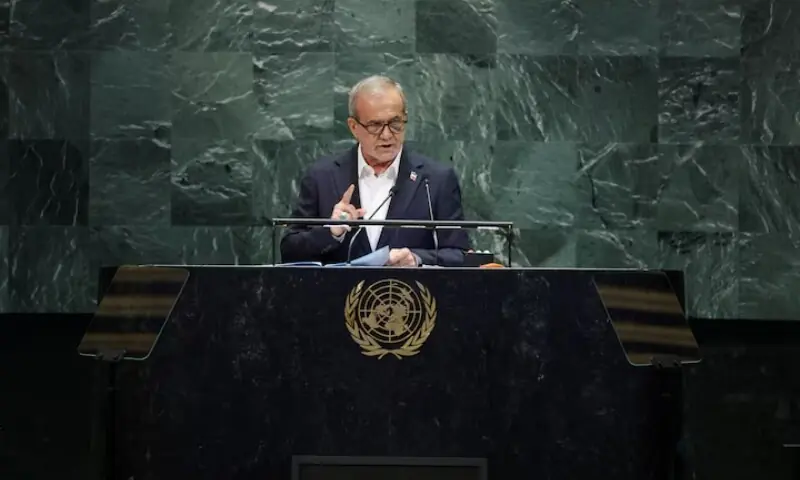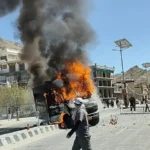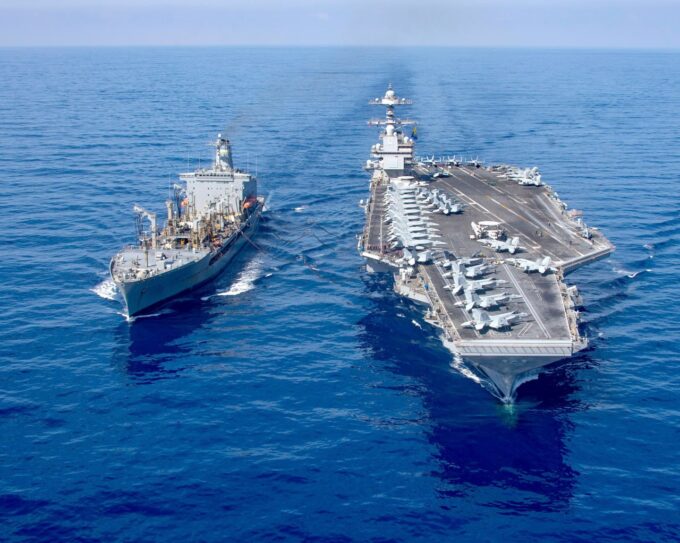Iranian President Masoud Pezeshkian on Wednesday voiced strong support for the newly signed defence pact between Pakistan and Saudi Arabia, calling it the beginning of a “comprehensive regional security system.” Speaking during the General Debate of the 80th Session of the United Nations General Assembly (UNGA), Pezeshkian described the accord as a model for Muslim states of West Asia to deepen cooperation in political, security and defence affairs.
The agreement — signed last week at Al-Yamamah Palace in Riyadh by Pakistan’s Prime Minister Shehbaz Sharif and Saudi Crown Prince Mohammad bin Salman — commits the two states to mutual defence, stipulating that an attack on one will be treated as aggression against both. Officials and analysts have described the deal as a landmark step in defence diplomacy, particularly given the shifting security environment across the Middle East and South Asia.
The timing of the pact is significant. It comes just weeks after an Arab summit that emphasized collective security following Israel’s strike on Qatar, an event that triggered widespread condemnation in the Muslim world. The accord also follows heightened regional instability: a deadly flare-up between India and Pakistan in May, and the 12-day war between Iran and Israel in June. Together, these crises have accelerated calls for stronger military and political coordination among Muslim-majority states.
Pakistani officials hinted that the deal could spark further security cooperation in the region. Deputy Prime Minister and Foreign Minister Ishaq Dar told reporters in London that “some other countries want to enter into an agreement of this nature,” suggesting broader interest in multilateral defence arrangements under Pakistan’s leadership. He cautioned, however, that discussions remain at an early stage.
For Tehran, the pact underscores a rare moment of alignment with Riyadh. The two states, historically rivals across multiple conflicts — from Syria to Yemen — severed diplomatic ties in 2016 but restored them in 2023 under a China-brokered rapprochement. Since then, both sides have engaged in high-level exchanges and cautious confidence-building. Saudi Arabia’s condemnation of Israel’s strikes on Iran in May, and its criticism of subsequent U.S. strikes on Iranian nuclear facilities, have further illustrated a gradual warming in relations.
Analysts note that Iran’s endorsement of the Pak-Saudi defence pact highlights the shifting balance of power in the region, where Muslim states are increasingly exploring cooperative security frameworks outside of Western-led alliances. While it remains unclear whether other nations will formally join the accord, the deal could serve as a nucleus for broader defence partnerships — potentially reshaping the strategic landscape of West Asia and South Asia alike.












Leave a comment